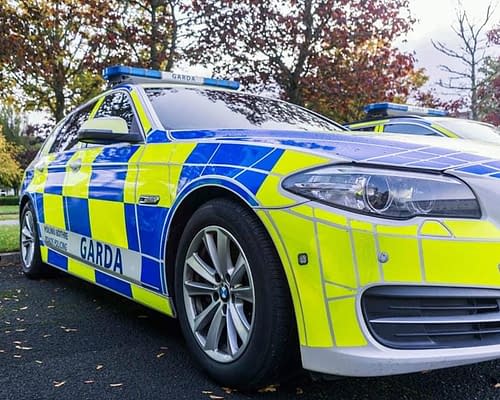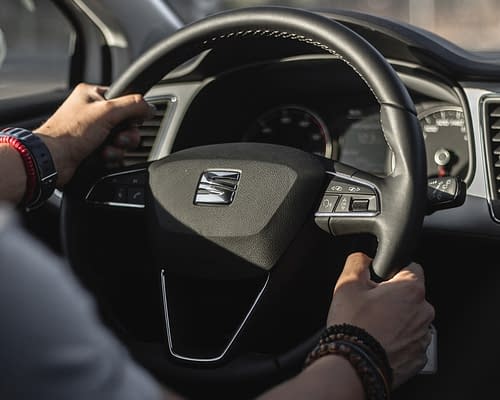Diesel and petrol cars sale will be phased out across Europe by 2035

By The Headlines, February 17, 2023 | 05:51 PM
Electric cars may be a boost in European markets. By the year 2035, buying new diesel and petrol cars will no longer be allowed in Europe. This shift is part of an initiative to reduce air pollution and help preserve the environment.
Brian Cooke, Director General of the Society of Motor Industry (SIMI), states that the new law will be a challenging endeavour for the automotive industry.
In spite of attempts by some fossil fuel and car firms to influence the decision, an Irish MEP has announced that it is time for Europe to move away from petrol & diesel cars by 2035. Consequently, only electric vehicles will be on the market.
In a landslide victory today, the European Parliament voted 340 to 279 in favour of the new regulations for CO2 emissions for cars and vans. MEP Grace O'Sullivan praised the move, showcasing how Europe is shifting towards a more human-centric future, instead of focusing on automobiles.
Legally binding changes have been made with the goal of phasing out combustion technology in cars and vans within 12 years. Additionally, the impact of any advancements made will be accounted for when the review is conducted in 2027. Furthermore, to ensure a better environment, these changes also include a commitment to reduce overall car emissions by 55% in 2030.
Ireland's Government is obliged to update its fleet-wide C02 targets in compliance with the new regulations. They must also submit all technical information of every freshly registered car or van on an annual basis to the European Commission.
Ms O'Sullivan of the Green Party emphasized the importance of a "Europe built for people, not for traffic" during her speech in Strasbourg. She proposed a new vision that focuses on creating beautiful towns and landscapes while remaining mindful of its inhabitants.
Ms O'Sullivan has called on the Irish Government to help rural Ireland shift to a greener future via hefty investments in road transportation. She also noted that transport accounts for 18% of the country's total emissions, hence making it a core sector of importance when it comes to striving towards sustainability.
We have the resources to tackle the issues related to transport - such as investing in public transport, making towns pedestrian-friendly, and making affordable electric vehicles available. Rural Ireland deserves special attention in this regard.
Fossil fuel businesses have made an unprecedented amount of money due to the current cost of living crisis, which has had a huge negative impact on working families. Ireland should strive for energy independence by reducing its reliance on foreign fuels such as oil, gas, petrol and diesel. This would be an efficient way to achieve self-sufficiency.
Ireland witnessed the registration of 105,253 new cars in the past year, with petrol leading at 30.16%, diesel at 26.77%, hybrid at 19.29%, electric at 14.90% and plug-in hybrids registering 6.76% as per the data given by the Society of Irish Motor Industry.
Brian Cooke, Director General of SIMI, said the upcoming legislation would be a difficult responsibility for the motor industry, however, he was confident as manufacturers have already begun heavily investing in electric vehicles and providing them at multiple levels of affordability. He went on to say that although the industry has a lot of control over reducing emissions, high taxes on new cars in Ireland could be a major hurdle to achieving this goal.
Also Read: Prediction about the Cost Of Living Package
The Transport Minister of Ireland, Eamon Ryan, applauded the European Parliament's unprecedented vote, emphasizing the need to capitalize on the surge in Electric Vehicle (EV) demand. He noted that the market was now "gaining momentum" and must be nurtured for greater success.
He highlighted Ireland's enthusiasm towards the quick processing of the regulation & even demanded a more ambitious approach as a European Union-wide measure being the most effective one. In 2022 alone, more than 15,500 electric vehicles were registered for the first time. This accounts for around 15% of all cars that have been newly licensed this year. The amount of EVs has been steadily rising year after year.
The Climate Action Plan 2023 appointed a goal of having 1 in 3 cars on the road being an electric vehicle by 2030, which is a target the government firmly believes can be achieved. Nevertheless, EVs don't summarize our ambitions of reducing emissions by 50% - they are merely an integral part of it.
There was a push to strengthen public transport, particularly in rural Ireland. Plans are in discussion to have safe walking and cycling facilities that will give people a choice of transport without using the car.
Image by (Joenomias) Menno de Jong from Pixabay









